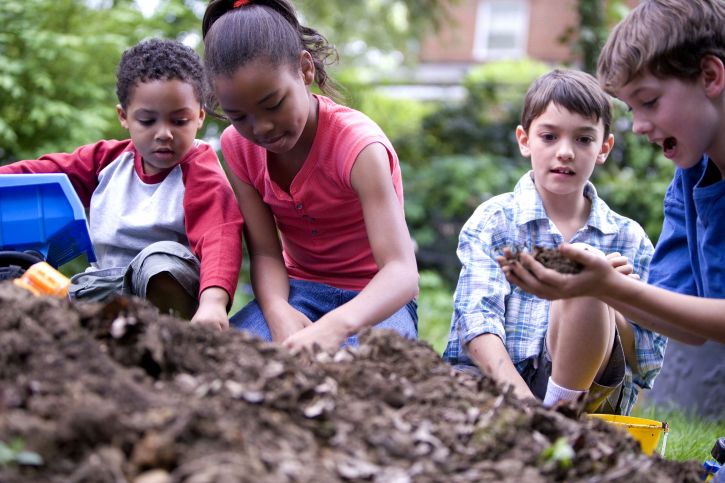
The new school year is underway, but your children will learn some of their most valuable lessons outside the classroom. One of these is the importance of setting good boundaries. Everyone has different comfort levels, and people need different amounts of personal space to feel safe. When kids understand this, they are more likely to respect others, and to speak up if they feel that someone has crossed the line. This skill can help them navigate relationships later in life.
Depending on your child’s age, you may have to explain boundaries in different ways. Small children will be able to grasp the physical aspect of it – the idea of a “personal bubble” that each person needs to feel comfortable. Everyone’s bubble is a different size, so it’s important to remember that before touching or playing with a child or adult. Older children will be able to grasp the idea of emotional boundaries. They should be encouraged to tell a parent or teacher when someone displays inappropriate behaviors, like manipulation or bullying.
Here are some activities and games to help children of different ages understand personal boundaries:
Preschool – 3-5 Years:
- Identifying Emotions: Print out pictures of people who show anger, sadness, happiness, etc., and help them identify each emotion by the facial expression or body language.
- Body Language: Using pipe cleaners or clay, ask your child to model people that are showing different emotions, like surprise or sadness. Talk about how they can read other people’s body language, and how to react.
Grade School – 5 – 12 Years:
- Role Playing: Take turns acting out situations that your child may encounter with a friend or a sibling – e.g., when someone takes their toy without asking, yells at them, or pushes them. Model how they should react and the importance of telling an adult when someone hurts them.
- Personal Space: To explain the personal space bubble, put hula hoops down on the floor and have each child stand inside one. Each person should blow bubbles and try to reach the other players, while moving their hula hoop closer every 30 seconds. When someone feels that the other player is getting “too close,” you can stop the game and talk about boundaries. This can also help explain the difference between “family space” and “friend space.”
Teen – 13+:
- Relationship Mapping: This is a visual tool that can help teens define who they trust and how they relate to others. Have your child draw a circle with his/her name in the center. Then, draw a larger circle around the first circle and have your child write down the names of the people closest to him/her. Then, draw another circle to include more distant friends and acquaintances. This can help your child define his/her closest friends, and those they want to keep at arm’s length.
- Defining Values: Ask your teen to write down the values and goals that are important to them in life. Have them assess the different people in their lives, including friends and significant others. Which people help them achieve these goals, and which people detract from them?
At Hubbard House, our therapeutic childcare staff partners with parents to help our young clients develop an understanding of their feelings and needs, to appropriately communicate them to others, and to take safe action to protect themselves when they don’t feel secure. We also help them to develop the skills they need to demonstrate respect for others. Teaching relational skills to children and young people is just one of the ways we are enacting our mission to facilitate safety, empowerment, and social change for victims of domestic violence and their children.
About Hubbard House:
Hubbard house is a full-service certified domestic violence center providing prevention and intervention to domestic violence survivors and their families in Duval and Baker counties in Northeast Florida.
Individuals who are in an abusive relationship, or know someone who is, are urged to call Hubbard House’s 24-hour domestic violence hotline at (904) 354-3114 or 1-800-500-1119.
